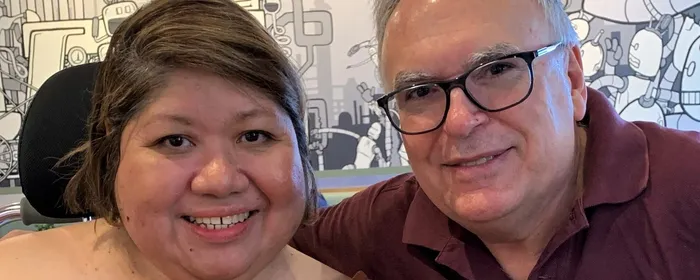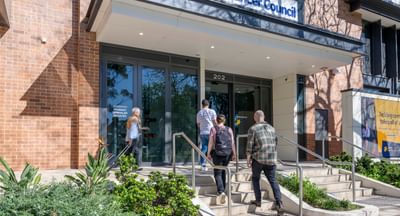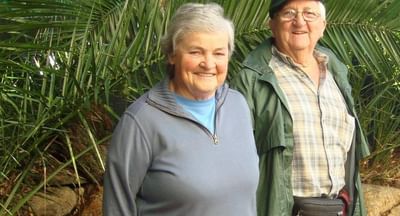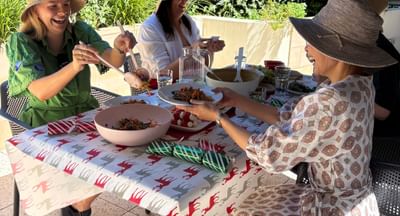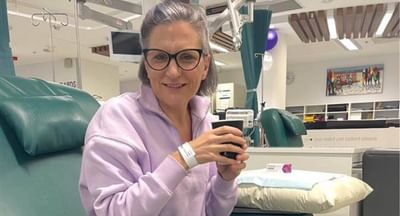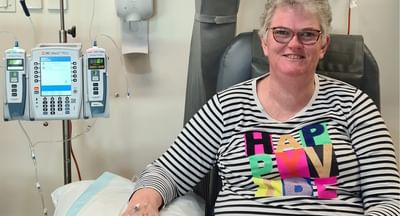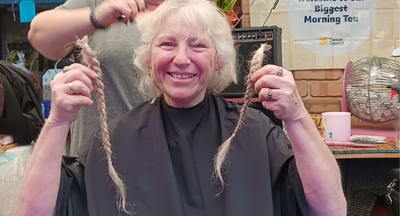“She went to bed one night and woke with a seizure,” Andy recalls of that life-changing experience.
“She was paralysed and couldn’t get up, so I managed to get her to the Lyell McEwin Hospital,” he says.
“After undergoing some tests and CT scans, we found out she had a brain tumour.”
“It was a huge shock at the time, she went from having a university assignment to complete one day to having to deal with a brain tumour the next.”
Her treatment involved a partial removal of the tumour in the left parietal lobe, followed by six weeks of radiotherapy to shrink the remaining tumour.
After experiencing another large seizure in 2016, Rosel was partially paralysed on the right side of her body. That seizure was the first in a string of many more to come, leading to her post-cancer diagnosis of SMART syndrome, an acronym for stroke-like migraine attacks after radiation therapy.
Rosel now uses a wheelchair and Andy has remained by his wife’s side since he quit his job seven years ago to become a full-time carer.
The couple volunteer for Cancer Council SA’s Cancer Connect, a free and confidential telephone support service that connects people with cancer, carers and loved ones with a trained peer who has shared a similar cancer experience.
When she is feeling well enough, Rosel offers a listening ear to people going through a similar cancer experience, while Andy provides practical advice and support to people who, like himself, care selflessly for their loved ones around the clock.
“The role of carers is often downplayed or undervalued – the medical team is terrific in the diagnosis and treatment side of things, but carers have to provide emotional support and encouragement, as well as practical, day-to-day care,” Andy says.
He says initiatives such as Brain Cancer Awareness Month in May are vital to empowering and amplifying the voices of people who are impacted by brain cancer.
“Brain cancer is a major killer, and the survival rates haven’t really improved over the years compared with many other cancers so more research needs to be done into treatment and diagnosis,” Andy says.
“It’s also a scary cancer – people don’t really like to talk about it so anything we can do to raise awareness and reduce the stigma is important.”
If you’re interested in speaking to someone about your cancer experience who has had a similar diagnosis or treatment, or who shares a similar age or lifestyle to you, call Cancer Council 13 11 20 to register your interest for the Cancer Connect program.
If you, or someone you know, has been diagnosed with brain cancer, you can contact Cancer Council 13 11 20 to speak to an experienced cancer nurse Monday to Friday, 9.00 am to 5.00 pm.
